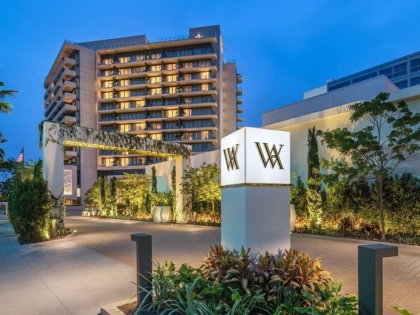Regulations by State
- Alabama
- There is no regulation or guidance specific to decentralized water reuse, however, Alabama’s Department of Environmental Management oversees the state’s procedures and requirements (Reclaimed Water Reuse Program, Chapter 335-6-20) for pollution source permits for reclaimed water reuse facilities.
- Alaska
- There is no information about decentralized water reuse in Alaska.
- Arizona
- Arizona has a rich history of water reuse dating back to around 1926. Approximately two-thirds of treated wastewater in the state is reused for various purposes. Legislative authority for water reuse is ran by the Arizona Department of Environmental Quality (ADEQ), with a focus on protecting water quality and human health. While permitting for direct potable reuse (DPR) is allowed, Arizona lacks specific regulations for indirect potable reuse (IPR), but it can be conducted under separate ADEQ groundwater protection permitting regulations. Apart from greywater use, onsite or decentralized water reuse in Arizona lacks specific rules.
Regulatory efforts by ADEQ include ongoing recycled water rulemaking, involving consultations with stakeholders, and a triennial surface water quality review, complying with the Clean Water Act. Additionally, ADEQ initiated comprehensive rulemaking for DPR in July 2022. Specific regulations governing recycled water use and water quality standards are outlined in AAC Title 18, Chapter 9, Article 7, and AAC Title 18, Chapter 11, Article 3, respectively.
- Arkansas
- There is no information about decentralized water reuse in Arkansas.
- California
- Water reuse in California is regulated and promoted through a multi-agency approach. The State Water Resources Control Board (SWRCB) oversees water quality regulations and statewide guidelines for recycled water, including potable and non-potable reuse, along with onsite reuse. The California Department of Water Resources manages water supply, including conservation, groundwater, and surface water.
Key regulations and policies include Title 22 regulations for recycled water, which cover various aspects like non-potable recycled water, groundwater recharge, and reservoir water augmentation.
SB 966 creates statewide rules—developed by the California State Water Resources Control Board—that allow cities and counties to permit safe, building-scale reuse of non-potable water such as graywater, rainwater, and stormwater. The law doesn’t require any building to install a reuse system; it simply enables local governments to allow them. In 2025, the State Water Board officially adopted the required regulations, which set specific treatment and pathogen-reduction standards for onsite reuse systems using graywater, roof runoff, stormwater, or certain types of wastewater. Additionally, legacy systems are required to comply with the new standards and treatment train.
In San Francisco, Article 12C of the San Francisco Health Code requires all new development projects of 100,000 gross square feet or more to install and operate an onsite water reuse system. These systems capture and treat greywater, rainwater, and blackwater for reuse in toilet flushing, irrigation, and cooling. San Francisco is part of a national effort through the National Blue Ribbon Commission to help overcome barriers to onsite water reuse and make its implementation more accessible.
In Los Angeles, the Green Building Code mandates that new residential buildings over 25 stories have 100% of the cooling tower makeup water supply come from non-potable water sources, including treated backwash. Non-residential buildings over 25 stories will need to have a minimum of 6 cycles of concentration (blowdown) or a minimum of 50% of the cooling tower makeup water supply come from non-potable water sources, including treated backwash. Additionally, new construction buildings will need to reduce overall potable water use within the building by 20%. The reduction shall be based on the maximum allowable water use for plumbing fixtures and fittings as required by the Los Angeles Plumbing Code.
The Recycled Water Policy, updated every five years, outlines requirements for potable reuse permits and guidelines for all recycled water uses.
Incentives
California supports water reuse through various financial incentives aimed at promoting the implementation of water reuse projects and technologies. SWRCB also provides a long list of funding options through loans, rebates, and grants for recycled water projects such as the Water Recycling Funding Program (WRFP), the Water Savings Incentive Program (WSIP), and the SFPUC Onsite Water Reuse Grant Program.The Metropolitan Water District of Southern California’s (Metropolitan) Water Savings Incentive Program (WSIP) incentivizes commercial, industrial, institutional, agricultural, and large landscape customers to increase water use efficiency through upgraded equipment or services that do not qualify for standard rebates. Any project that saves at least 10,000,000 gallons of water could qualify for WSIP funding.
Direct Potable Reuse
Although not required, California has passed a direct potable reuse (DPR) regulation (SBDDW-23-001) that allows for direct reuse for consumption. This is adopted as of October 1, 2024. FAQ. - Colorado
- Colorado’s water reuse efforts are spearheaded by the Reclaimed Water Program, managed by the Colorado Department of Public Health and Environment (CDPHE), established in 2000 under the Reclaimed Water Control Regulation. This program promotes water reuse for applications like irrigation, industrial use, toilet flushing, and more.
Colorado approves the onsite non-potable reuse of greywater for subsurface irrigation and toilet and urinal flushing and domestic wastewater for industrial and commercial uses, landscape and agricultural irrigation, fire protection and toilet and urinal flushing (5 Code Colo. Regs. § 1002-86). The state’s regulatory framework includes Regulation No. 11, updated in January 2023, specifying the requirements for DPR as a new source for drinking water supply. Regulation No. 84 governs reclaimed water use, with guidelines for various applications. Reclaimed water permit requirements may vary on a case-by-case basis. Regulation No. 86, in effect since February 2015, outlines greywater regulation.
January 1, 2026, HB24-1362 authorizes the installation of greywater treatment in new construction projects and the use of greywater statewide; except that a local government:
- May adopt an ordinance or a resolution prohibiting the installation of greywater treatment works or the use of all graywater or categories of greywater use within its jurisdiction; and
- Shall notify the division of administration in the department of public health and environment of any such local ordinance or resolution adopted and of any local ordinance or resolution adopted that authorizes a use of greywater previously prohibited.
- Water rights within the state can interfere with reuse programs. It is important that a discussion be had with the owner regarding water rights especially for new construction projects without significant hardscape.
Find more details on HB24-1362 here.
The state also runs grant programs, such as the Water Plan Grant fund to incentivize new water reuse projects.
- Connecticut
- Decentralized water reuse in Connecticut is allowed but only under limited circumstances. Connecticut Department of Energy and Environmental Protection (DEEP) oversees permitting of onsite systems. See the State Water Plan for additional information. Individual permits issued, dependent on type of wastewater being treated and reuse destination.
- Delaware
- While Delaware has recycled wastewater for decades for use in spray irrigation, there is no specific guidance for decentralized reuse systems by the state.
- Florida
- Florida has regulations that specify requirements of how reclaimed water is to be treated depending on the use or application of the water. Chapter 13 of the Florida Building Plumbing Code outlines requirements for onsite water reuse treatment. You can find general information and links pertaining to Florida’s water reuse activities, rules, statutory authorities, and resources here.
Florida also offers a greywater density bonus for multifamily developments that are at least 25 units and five stories or less (Florida Statute 403.892). Developers may receive a 35% density bonus if 100% of units use treated greywater, and a 25% density bonus if 75% of units use greywater.
- Georgia
- In 2011, Georgia updated its plumbing code to allow reclaimed water to be used for toilet and urinal flushing, and for other approved uses, in buildings where the occupants do not have access to the plumbing. They released the Georgia Guidelines for Reclaimed Water Systems for Buildings to assist all parties involved in the design, construction, inspection and maintenance of reclaimed water systems
Guidelines for greywater reuse in the state should help you decide whether it is possible or feasible for a greywater system to be used for flushing of toilets and urinals, or for use for subsurface landscape irrigation.
- Hawaii
- Hawaii’s water reuse regulations are primarily governed by the Hawaii Department of Health (DOH) and the Hawaii Department of Environmental Management (DEM). Regulations focus on ensuring water quality and public health standards are met for various non-potable applications such as dust control, cleaning, and firefighting (Hawai’i State DOH, 2016b). All relevant provisions of the Clean Water Act (CWA) (33 U.S.C. §§ 1251 et seq.), along with implementing regulations, must meet any applicable state water quality standards.
- Hawaii Department of Health, Recycled Water Program
- Hawaii Department of Health, Guidelines for the Reuse of Greywater
- Idaho
- Idaho has actively promoted water reuse initiatives with reuse regulations and guidelines (IDAPA 58.01.17) that include treatment and beneficial reuse of municipal and industrial wastewater. However, there are no specific regulations or guidance by the state for decentralized water reuse.
- Illinois
- Currently, greywater systems are not expressly allowed as an alternative to traditional plumbing systems in the Illinois Plumbing Code and there may be a more involved and time consuming approval process. However, the Public Building Commission provides a guide to the implementation and maintenance of water reuse systems including recommend appropriate water reuse measures, particularly relating to rainwater harvesting and greywater recycling.
- Indiana
- There is no information about decentralized water reuse in Indiana.
- Iowa
- Iowa has established regulations to govern the reuse of treated effluent for golf course irrigation, however, other types of landscape and agricultural irrigation are permitted on a project-by-project basis. There is no state-wide guidance or ordinance regarding onsite water reuse systems, only limitations or prohibitions on effluent and pretreatment standards.
- Kansas
- There is no information about decentralized water reuse in Kansas.
- Kentucky
- There is no information about decentralized water reuse in Kentucky.
- Louisiana
- The Louisiana Reclaimed Water Law (Title 30, Chapter 17, Section 2391 et seq.) requires the use of reclaimed water if a source exists, and encourages facilities to reuse or reclaim wastewater thereby eliminating discharges to waters of the state. There may be tax deductions available for capital improvements under La. Stat. tit. 30 § 2398.
There is no law, regulation or guidance provided by the state for decentralized water reuse.
- Maine
- There is no information about decentralized water reuse in Maine.
- Maryland
- Maryland Department of Environment’s guidelines address the reuse of treated municipal wastewater effluent and do not offer specifics relating to onsite reuse standards.
- Massachusetts
- Massachusetts Department of the Environment has established a Reclaimed Water Permit program that enables large scale non-potable reuse in cooling water, toilet and urinal flushing, boiler feed, industrial process water and irrigation to golf courses, parks, agricultural fields, landscaped areas and cemeteries.
- Michigan
- There is no information about decentralized water reuse in Michigan.
- Minnesota
- There is no comprehensive statewide guidance or policy on water reuse in Minnesota, however, non-potable wastewater reuse is allowed and has been practiced for more than 40 years. Permits are issued on a case-by-case basis. Requirements vary based on the design flows of the facility, the type of treatment system, and where and how the treated wastewater will be discharged.
This comprehensive report discusses the current status of reuse policies in Minnesota for wastewater, stormwater and rainwater, and greywater reuse.
- Mississippi
- There is no information about decentralized water reuse in Mississippi.
- Missouri
- There is no information about decentralized water reuse in Missouri.
- Montana
- The Montana Department of Environmental Quality (MDEQ) regulates the reuse of greywater and wastewater for functions such as irrigation and toilet flushing. Rule 17.36.319, Greywater Reuse, under Chapter 36, details permitting for greywater systems and onsite subsurface wastewater treatment.
- Nebraska
- There is no information about decentralized water reuse in Nebraska.
- Nevada
- In Nevada, the Division of Environmental Protection has established regulations overseeing the recycling of water for both potable and non-potable purposes. Under the regulatory framework in Chapter 445 – Water Controls, guidelines are set forth to govern the utilization and standards of reclaimed water. Non-potable reuse applications include commercial toilet and urinal flushing, firefighting, and others.
- New Hampshire
- Limited options for reuse. Wastewater land treatment and/or disposal methods: 1) rapid infiltration (RI) systems. 2) slow rate infiltration (SR) systems 3) spray irrigation of turf at golf courses. 4) snow making.
- New Jersey
- The New Jersey Department of Environmental Protection (NJDEP), Division of Water Quality allows reclaimed water to be used for non-potable applications in place of potable water or as a supplement to potable water. Potential applications include irrigation of crops, parks, and golf courses; dust control; firefighting; and toilet flushing. However, the onsite reuse guidance provided is for residential septic systems and not large buildings.
- New Mexico
- New Mexico approves the onsite non-potable reuse of greywater for toilet flushing, non-spray landscape irrigation and composting (N.M. Code R. § 20.7.3). All applicable provisions of the Clean Water Act (CWA) (33 U.S.C. §§ 1251 et seq.), must be met. There is no information specific to onsite water reuse for New Mexico, however the New Mexico Environment Department (NMED), is developing further regulations for water reuse (20.6.8 NMAC).
- New York
- The NY Department of Environmental Protection offers a water conservation and reuse grants program to encourage commercial, industrial, and multifamily property owners to implement onsite water reuse systems. Owners can get a 25% reduction in utility fees if onsite wastewater reuse systems reduce the building’s water use by 25%. To qualify, the building must also include stormwater collection, specific flow rates must be adhered to on water use appliances, and the system must meet certain jurisdiction requirements.
- North Carolina
- North Carolina statute (Title 15A of the North Carolina Administrative Code Subchapter 2T.0900) encourages water reuse as an alternative to surface water discharge. Treated water may be used for a range of non-potable purposes, including irrigation, dust control, cooling and other industrial purposes, flushing, ponds and fountains, street sweeping, and car washing, among others.
Additionally, Senate Bill 163 finds that the reuse of treated wastewater and the use of greywater or captured rainwater for direct potable use is allowed under certain conditions.
- North Dakota
- There is no information about decentralized water reuse in North Dakota.
- Ohio
- Ohio does not currently regulate water recycling, however, they do offer guidance and scope for greywater recycling systems. Currently, the system flow limit is 1,000 GPD maximum, and effluent is primarily used for irrigation.
- Oklahoma
- In 2012, Oklahoma’s Department of Environmental Quality promulgated water reuse regulations to govern groundwater recharge and other applications of water recycling. In Oklahoma, onsite non-potable water reuse includes gardening and composting, among others. The source of water (onsite collected waters) is specified by the state as private residential greywater.
- Oregon
- The state encourages reclaimed water reuse for irrigation and commercial and residential applications under specific conditions, with oversight from agencies such as the Department of Environmental Quality and the Oregon Water Resources Department. Greywater reuse was legalized in 2012, but system need a permit from the DEQ to prevent spillage into waterways or neighboring yards.
Oregon Administrative Rules 340-055-0005 outline the methodologies, procedures, treatment protocols, and monitoring requirements necessary for the beneficial utilization of reclaimed water.
- Pennsylvania
- While the Pennsylvania Department of Environmental Protection (DEP) has developed a guidance manual for water reuse practices, it only applies to the reuse of treated wastewater from domestic wastewater treatment facilities and there is no specific guidance for onsite reuse.
- Rhode Island
- Rhode Island Department of Environmental Management has guidance for water reuse projects looking to use reclaimed water for irrigation or cooling purposes. The state does not have any specific regulations or guidance for building scale onsite reuse systems.
- South Carolina
- South Carolina’s Plumbing Code, Chapter 13 Non-Potable Water Systems, details a set of requirements and parameters for non-potable water reuse systems. South Carolina does not allow blackwater onsite water reuse systems.
- South Dakota
- There is no information about decentralized water reuse in South Dakota.
- Tennessee
- There is no information about decentralized water reuse in Tennessee.
- Texas
- Water reuse regulations in Texas are primarily governed by the Texas Commission on Environmental Quality (TCEQ). The state has authorized the onsite use of greywater and alternative non-potable water sources for a range of residential, commercial, and agricultural purposes. These include, but are not limited to, gardening, irrigation, and toilet and urinal flushing (30 Tex. Admin. Code § 210.81-85).
Austin, TX specifically launched a GoPurple program that requires all new commercial, multifamily, and mixed-use developments larger than 250,000 square feet to adhere to new water reuse regulations. There are different means by which buildings can meet these new regulations, including installing a decentralized onsite water reuse system or by adding dual plumbing to connect to the city’s centralized reclaimed purple pipe infrastructure. The program also offers various financial support measures like cost-sharing, grants, and other incentives. Learn more about this new regulation here.
- Utah
- The Utah Department of Environmental Quality (DEQ) oversees regulations related to water quality in Utah. Utah approves the use of “treated domestic wastewater effluent” for other centralized non-potable reuse applications including toilet flushing, fire protection, soil compaction and dust control (Utah Admin. Code r. 317-3-11). Approvals and permits are required for water reuse projects.
- Vermont
- Vermont’s Department of Environmental Conservation has a well-established Environmental Protection Rules Chapter 14 Indirect Discharge Rules related to greywater, however, these rules are not specific to onsite reuse. Currently, systems with a capacity greater than 6,500 GPD are required to be permitted. You can find out more here.
- Virginia
- Virginia state regulations and department of environmental quality provide guidance on water reuse projects. Reclamation of either municipal or industrial wastewater and reuse of the reclaimed water is regulated.
Virginia has enacted rainwater harvesting system regulations as of November 20, 2024. Onsite non-potable water reuse applications for treated rainwater can be used within the building envelope and property boundaries for common purposes such as toilet and urinal flushing, irrigation (spray or subsurface drip), laundry, HVAC, hose bibbs, decorative fountains, pressure washing (building exterior cleaning), and firefighting or protection and fire suppression.
Collection and reuse of captured rainwater can offset the total water demands associated with the operation of the building. Building collection area and storage availability are some of the biggest drivers to determining water use reduction potential that can be served by rainwater.
Read more about new regulations at VDH or Epic’s summary of these regulations for buildings.
Virginia DEQ has two sources of funding for water reclamation and reuse on publicly owned projects:
- The Virginia Clean Water Revolving Loan Fund (VCWRLF) is available for such projects if they are publicly-owned and involve the treatment and reuse of municipal wastewater or sewage. The VCWRLF offers additional ranking points on the loans for projects that employ water reclamation and reuse technologies, and below market interest rates for all projects.
- The Water Quality Improvement Fund (WQIF) will reimburse the cost for design and installation of nutrient removal technology, including water reclamation and reuse, at publicly-owned treatment works that meets the nutrient reduction goal in an approved tributary strategy plan or applicable regulatory requirement, and is incurred prior to the execution of a grant agreement. Privately-owned or industrial facilities are not eligible to receive loans or cost share from VCWRL or WQIF.
- Washington
- The state of Washington regulates onsite systems that have a daily flow between 3,500 to 100,000 gallons per day. Referred to as LOSS (Large Onsite Sewage Systems), these systems are defined as ones that convey, store, treat, and provide subsurface soil treatment and disposal of domestic sewage. The LOSS rule is Chapter 246-272B WAC, developed under authority of Chapter 70A.115 RCW, effective July 1, 2011. LOSS offers an alternative to centralized municipal sewage treatment plants and can serve 10 to about 370 individual residences, or equivalent flows from schools and churches, campgrounds and recreation vehicle parks, resorts or state park sites, or smaller cities or towns. The Washington State Department of Ecology has offered support and resources for reclaimed water projects and permitting, while the Department of Health has ensured the safety of reclaimed water through its Water Reclamation and Reuse Program. State regulations incentivize reclaimed water use, aiming to replace potable water when feasible. H.B. 1184, passed in 2021, directs the development of statewide risk-based water quality standards for non-potable water reuse systems in commercial and multifamily buildings. Incentives: The city of Seattle is participating in the Living Building Pilot Program which aims to provide projects with additional height and floor area ratio (FAR) and allow departures from Seattle Land Use Code through Design Review in exchange for meeting requirements in the Living building Challenge. This pilot program runs through December 31, 2030 or when 20 projects are enrolled (currently at 13).
- Washington D.C.
- There is no information about decentralized water reuse in Washington D.C.
- West Virginia
- There is no information about decentralized water reuse in West Virginia.
- Wisconsin
- Wisconsin Administrative Code. SPS 382.70 was created to specify water quality standards for specific intended use. Allowed uses: Cooling water, irrigation, vehicle and clothes washing, toilet flush. Water quality standards are based on end use type.
- Wyoming
- Wyoming encourages water reuse where feasible, though they do not have a formal reuse program. The Wyoming Department of Environmental Quality has enacted a regulation that provides a comprehensive framework for obtaining permits for water reuse systems.
- Nationwide Grants
- Clean Water State Revolving Fund (CWSRF) is a partnership between the U.S. Environmental Protection Agency (EPA) and states to provide low interest rate loans for water infrastructure projects. There are a variety of project types eligible, including decentralized wastewater treatment systems.
Wastewater Capacity Charges are one-time fees for new developments to connect to a municipal water or sewer system. Some cities will agree to reduce upfront water and wastewater capacity charges (or rate reductions) in proportion to the anticipated flow reductions. This can be up to $500,000 depending on the project.
The Water Infrastructure and Innovation Act (WIFIA) is a federal credit program administered by the EPA that provides long-term, low-cost supplemental loans for regionally and nationally significant water and wastewater infrastructure projects. Qualifying WIFIA applicants must provide matching funds from another source.
Bureau of Reclamation’s WaterSMART Program offers grants for water reuse and recycling projects to support water management improvements. Small-scale projects, including high-efficiency indoor appliances/fixtures and commercial cooling systems, may request up to $100,000 in federal funding, with a non-federal cost-share of 50% or more of total project costs, for projects with total project costs no more than $225,000.









